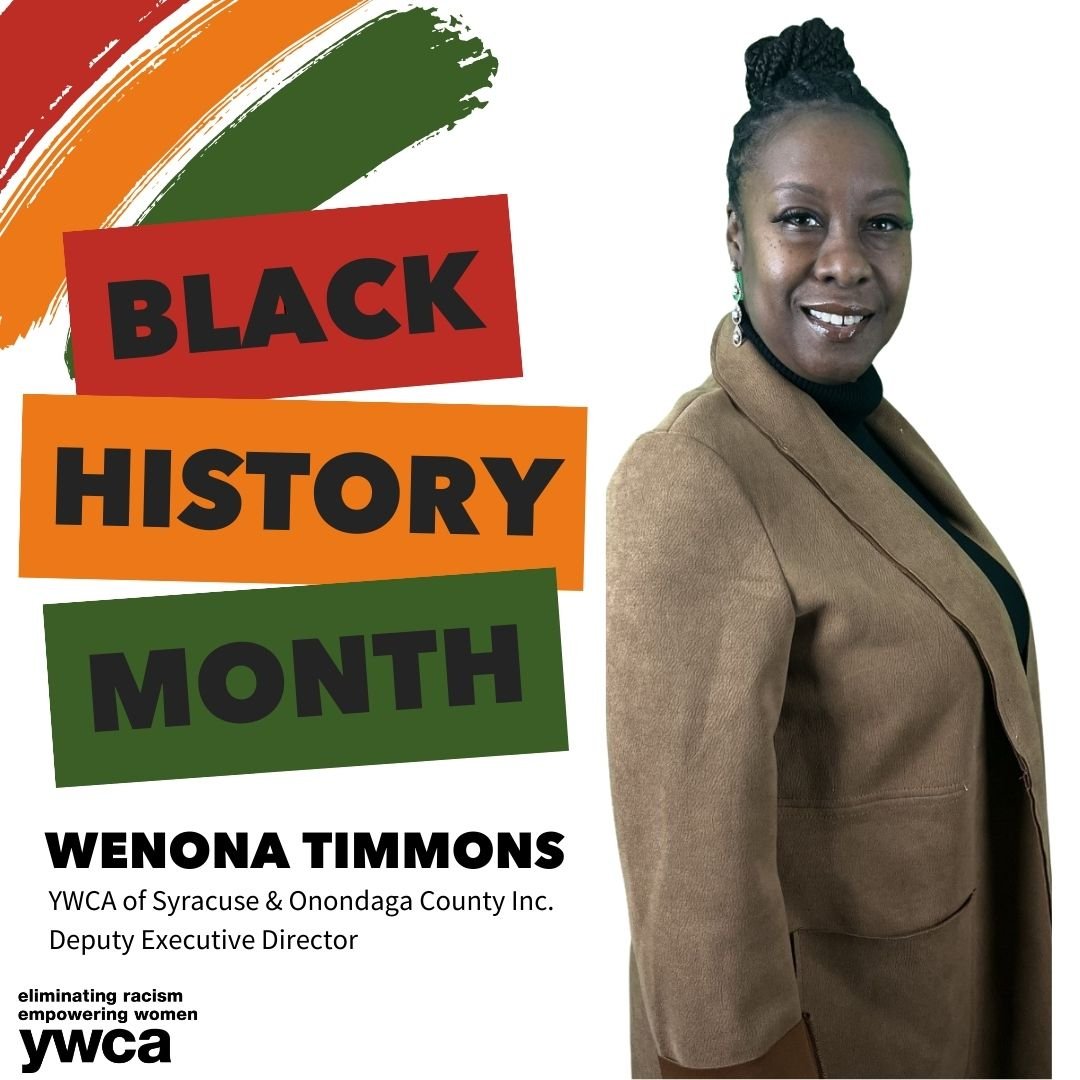Local Pioneer Wenona Timmons

However, our local leaders are often overlooked in this category. What if we started to look closer to home and reflect on what we can learn from the experiences of our neighbors? As we celebrate Black History Month at the YWCA, we recognized that black women have historically faced barriers to advancement—and local leader Wenona Timmons is no exception. Wenona moved to Central New York when she was just 8 years old, where she later became the first-ever Deputy Executive Director of the YWCA of Syracuse & Onondaga County. When first approached about sharing her story to highlight black pioneers, Wenona responded, “Well, I don’t consider myself a pioneer.” Yet it’s clear from her career and accomplishments that Wenona has a powerful story that we can learn from. Most pioneers have these five criteria in common: courage, vision, dedication, creativity and passion. This is her pioneering story.
COURAGE
Wenona moved across the country to Central New York with her mother when she was 8 years old. She worked vigorously throughout school and graduated high school when she was just 16 years old. She immediately went to college to pursue a degree in political science. Despite facing limitations as a young black college student, she was determined to get an education. Wenona not only earned her bachelor’s degree at 22 years old, but was courageous enough to go back to school in the midst of 2020 to receive her Executive Master of Public Administration.
VISION
Wenona grew up in poverty, which ultimately shaped the vision she wanted for her future. Growing up, she wanted to become a lawyer. Despite not being actively involved in law today, she is involved in promoting equity for those whom the law does not seem to favor. At the YWCA of Syracuse & Onondaga County, she actively supports the organization’s vision to create an equitable community while providing a supportive environment for women and children to define their lives and thrive. Wenona has always had a vision of promoting change, and in her current leadership position, she is given the opportunity to do exactly that.
DEDICATION
Facing racial and gender barriers herself, Wenona has remained committed to promoting peace, justice, freedom and dignity for all. She is currently the Chair of the Anti-Racism Committee for the Human Service Leadership Council (HSLC) which addresses the issues of racism in the workplace. She is dedicated to enhancing the diversity, equity and inclusion (DEI) strategies for organizations and implementing ideas on how we can all be more culturally responsible. As Deputy Executive Director at the YWCA, she is also dedicated to the mission to eliminate racism and empower women.
CREATIVITY
Through her roles at the YWCA and HSLC, Wenona offers a different perspective as a black female leader in our community. She offers ideas on how to transform organizations’ demographics and how to deal with systemic racism, while advocating for more diversity in the workplace. She highlights how many organizations' hiring processes tend to be exclusive rather than inclusive, which often leads to employees mirroring each other and contributing to a lack of diversity. Wenona offers creative solutions to these processes that others may not recognize.
PASSION
Racism is an uncomfortable topic, and speaking up against these injustices as a black professional can sometimes be controversial. It takes a lot of passion to continue to challenge the system. Wenona is passionate about working towards creating an environment where people feel comfortable speaking up. Wenona is passionate about dismantling unjust stereotypes. She hopes to encourage other black women to become leaders, and that if she can do it, so can they.
Black women have always faced barriers to advancement, and Wenona has experienced these obstacles firsthand. Keep in mind, it was only a little over 100 years ago when the U.S. Congress ratified the 19th Amendment, which ruled that women could no longer be denied the right to vote because of their sex. Despite efforts to increase equality since then, race and gender continue to have an unnecessary effect on these minorities’ lives and work experiences. Wenona Timmons, a local pioneer, has dedicated her life to better the lives of all those in our community. If we focus on equity and justice for all we will have a better chance at long-term success in the advancement of black women as leaders and pioneers.

